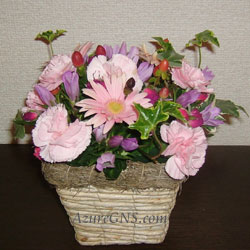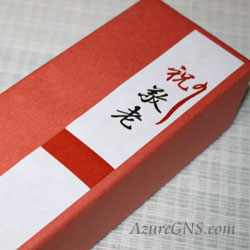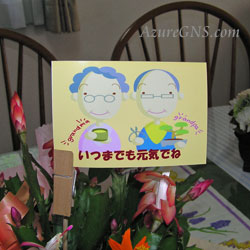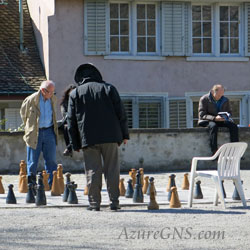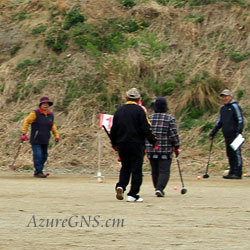国民の祝日
(9月の第3月曜日)
National Holiday
Keiro-no-hi;
Respect for the Aged Day
(the third Monday of September)
●敬老の日 Keiro-no-hi; Respect for the Aged Day
●老人;年配の人 the aged; the elderly; the old; old(er) people;
old man [woman]; senior citizens
●祖父母 grandparents
●祖父 grandfather
●祖母 grandmother
●孫 (単数)grandchild; (複数)grandchildren
●長寿 longevity; long life
●健康 health
●貢献 contribution
●感謝 gratitude; appreciation; thanks
●高齢化社会 aging society
●平均寿命 average life span
●介護保険 nursing care insurance
●公的看護保険 public insurance for elderly care
◆敬老の日の起源は兵庫県多可郡野間谷村の1947年(昭和22年)に生まれた「としよりの日」です。
The origin of Keiro-no-hi is “Toshiyori-no-hi” (Elderly People’s Day), which started in Nomatani Village, Taka County, Hyogo Prefecture in 1947 (Showa 22nd yr).
◆村長は戦争で人々が荒んで、徐々にお年寄りを大切にしなくなったことに心を痛め、「としよりの日」を提唱しました。
The chief of the village was disturbed that people had gradually stopped respecting the aged, because the war made people degenerate; therefore, he advocated “Toshiyori-no-hi”.
◆気候の良い農閑期の9月15日になりました。
The date was established on September 15th because the climate was mild and it was in the farmer’s off-season.
◆「としよりの日」は兵庫県全体に、やがて日本中に広まりました。
“Toshiyori-no-hi” spread to all of Hyogo Prefecture, and finally throughout Japan.
◆1966年(昭和41年)にはその日は敬老の日と名前を改め、国民の休日となりました。
In 1966 (Showa 41st yr), the day was established as a national holiday under the new name of Keiro-no-hi, Respect for the Aged Day.
◆2000年(平成12年)に制定されたハッピーマンデーという新しい法律により、敬老の日は9月の第3月曜日になりました。
In 2000 (Heisei 12th yr), Happy Monday, a new law was designated, and Keiro-no-hi was moved to the third Monday of September.
◆この日にお年寄りの今までの社会や家族への大きな貢献に感謝します。
On this day, people express their gratitude for the many contributions made by the elderly to their society and families.
◆お年寄りの健康と長寿を祈ります。
People pray for the health and longevity of elderly people.
◆お年寄の方々を敬う、様々な催しが行われます。
Various events are held to show respect for the elderly.
◆人々は贈り物を持って祖父母や年をとった両親や知人を訪問します。
People visit their grandparents, aged parents, and elderly acquaintances with presents.
◆一緒に食事をしたり、おしゃべりをしたりして楽しい時を過ごします。
They share a meal and chat, and enjoy each other’s company.
◆日本は世界一の長寿国です。
Japanese people have the longest average life expectancy in the world.
◆2016年(平成28年)の統計によると、日本の平均寿命は男性は80.79歳、女性は87.05歳です。
In Japan, the average life span of a man is 80.79 years, and that of a woman is 87.05 years, according to statistics in 2016 (Heisei 28th yr).
◆近年の少子化により、日本もますます高齢化社会になっています。
In recent years, Japan has become an aging society because an increasing number of people are having fewer children.
(より詳しい情報は「我が家の敬老の日」をご覧下さい。)
(Please see “My Respect for the Aged Day Experience” for further information.)
Copyright (C) Azure Global Network Services. All Rights Reserved.
